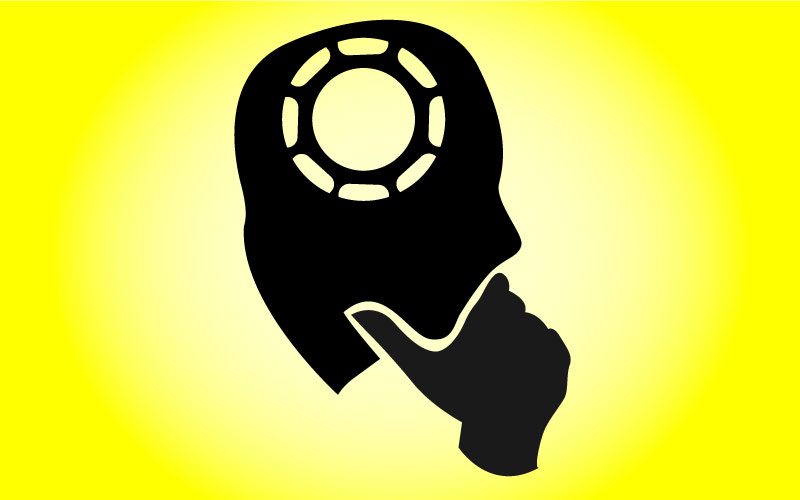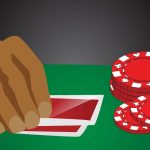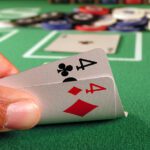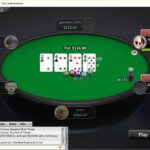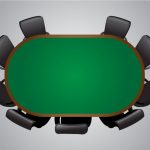Anosmic’s Year One post inspired me to do something for my first FTRnniversary. It’s been a great year for me, poker-wise. I started last February playing $10 SNGs and 25NL ring with a $300 bankroll and am now playing 200NL with a $8k bankroll. I’ve played ~75k ring hands in the past year, won over $8k and collected another $4k in bonuses and Rakeback. Honestly, I owe most of my success to FTR. If I hadn’t discovered this community of helpful, funny, passionate poker players, there’s no way I would have gotten to this point.
I’m want to try to give a little back to FTR by writing down my thoughts on the biggest obstacle to becoming a better poker player: discipline. Knowing the right thing to do is important, but if you don’t have the discipline to execute your knowledge, it’s useless. I struggle with issues of discipline constantly, in both my poker and work life, and have thought a lot about it. Hopefully some of my thoughts with benefit FTRers.
1. Bankroll Discipline – This comes first because without it, the rest doesn’t matter. Guidelines vary, but you shouldn’t be playing ring games without 15 buy-ins, SNGs without 30 entries or MTTs without 50 entries AT THE ACR MINIMUM. Better guidelines are 20 for ring, 50 for SNGs and 100 for MTTs. And these should be adjusted UPWARD if you multitable, play 6-max, or play a laggy, high-variance style.
2. Concentration Discipline – I either 6-table full-ring or 4 to 6-table 6-max and find it requires all of my concentration. If I have my e-mail program open, am browsing FTR or IM’ing with friends, I definitely don’t play as well. I still struggle with this sometimes, but when I start a poker session, I try to close all distracting programs on my computer, set up a long music playlist, don’t answer my phone or IM and just concentrate on poker. If I get bored and want to check my e-mail or go on FTR, I give myself a break, or cut down to 2 tables while I do it.
3. Reading Opponents Discipline – This is one I need to improve on. I’ll start a session great, paying attention to hands I’m not involved in and taking notes on players every time a hand goes to showdown. But after a half-hour or so, I get lazy and stop. Almost every hand that goes to showdown (and some that don’t) provides valuable information, and if you’re not picking up on it, that’s costing you money.
4. Multi-tabling Discipline – This one really varies from person to person. There are successful 12-tablers at mid-stakes and sick high stakes players who won’t play more than 3 or 4. But I strongly believe that if you don’t have time to look at instant hand histories, make reads and make notes without missing action, you’re playing too many tables. I’ve found my own limit seems to be 7 tables of full ring and 4 tables of 6-max, but I’ve been working on adding 6-max tables recently.
5. Table/Seat Selection Discipline – There’s absolutely no reason to sit at a bad table or in a bad seat. But it takes discipline to leave when a table turns bad, or a good tagg sits down on your left. Make sure you know what makes a good table… high table VPIP, full stacks/loose players/aggressive players to your right and tight/weak/passive players to your left. If the table donators go busto and leave, STAND UP. If a decent tagg or lagg on your left is owning you, STAND UP. Table/seat selection is one of the biggest +EV differences between online poker and live poker. Take advantage of it.
6. Session Review Discipline – When you’re finished with a session, it’s easy to forget about it, either because it went well (as you expected b/c you’re a poker god) or because it went terribly (thanks to stupid, lucky fish and bad beats). But, it’s crucial that you review every session before you play your next. I generally just look at my top 5 or 10 biggest winners and losers of the session. If I took a bad beat, I congratulate myself. If I gave a bad beat, made a bad play, made a bad read, I figure out my mistake and OWN IT. If you don’t own your mistakes, you can’t improve them. If you think, “It was a good bluff, he never should have called, I’d do it again the same way,” you’ve learned nothing. If instead, you analyze why he might have called (the board, your line, your image, he’s a station) and how you could have realized that beforehand (by thinking about what you were repping, looking at his stats, a read you missed) then you’ve learned something. When you come across a difficult hand, post it on FTR.
7. Improving Your Game Discipline – Set a percentage of your poker time aside every week and devote it to reading about the game. Read these forums and 2+2 and take the time to think through the hands /questions before you read other people’s responses. Read Poker Books. Re-read Poker Books. Reading the Harrington on Hold Em books, Sklansky’s Theory of Poker and Sklansky & Miller’s NLHE Theory & Practice helped me immensely and I’m wearing them out re-reading them. Plug hands into PokerStove. If you play SNGs, buy Sitngo Analyzer and play with that. Subscribe to Cardrunners or PokerXFactor and download Poker Videos. Get on ventrilo or AIM or irc or the FTR Chat room and find better players willing to discuss strategy with you. All the resources are out there, but you need to devote some time to studying as well as playing. Playing lots and lots of hands is the best way to improve your game, but without some amount of study to set you on the right course (and correct that course once in awhile) it doesn’t matter how much you play.
8. Poker Discipline – By this I mean discipline in your actual poker decisions. This is one of the hardest for me. I still make spewy bluffs, stupid hero calls and generally make decisions too quickly. This one is very personal, b/c everyone has their own discipline issues (yours might be playing too loose pre-flop, calling raises oop, chasing draws, pushing draws) but I have a reminder list that I read before every session that I think helps me somewhat. It changes frequently, but currently it looks like:
| Quote: |
| 1. CONCENTRATION! Playing six tables requires as much as you can give it. Set up music beforehand, close Outlook, no browsing, no phone calls.
2. PATIENCE! Poker is a long-term game 2a. No fancy play for at least two orbits! 3. GET READS! After a few orbits you should have new reads on a least a player or two at every table. 4. TAKE YOUR TIME when facing big bets. HAND OFF THE MOUSE! 4a. Big bets are rarely bluffs. Remember how much money you’ve lost not folding. 5. Look closely at player notes/stats before playing post-flop. 6. Make an attempt to put players on a HAND RANGE before every street! |
I still end up making decisions too quickly sometimes, but I’m trying to make myself: wait for the colored FT timer to start ticking or my Stars time bank to be activated when I’m faced with a big pot decision, take my hand off the mouse and not worry about my other tables unless I have a big hand/decision there too.
Ok, this is really long. Thanks to FTR for an enjoyable and profitable first year of online poker.
Submit your review | |


